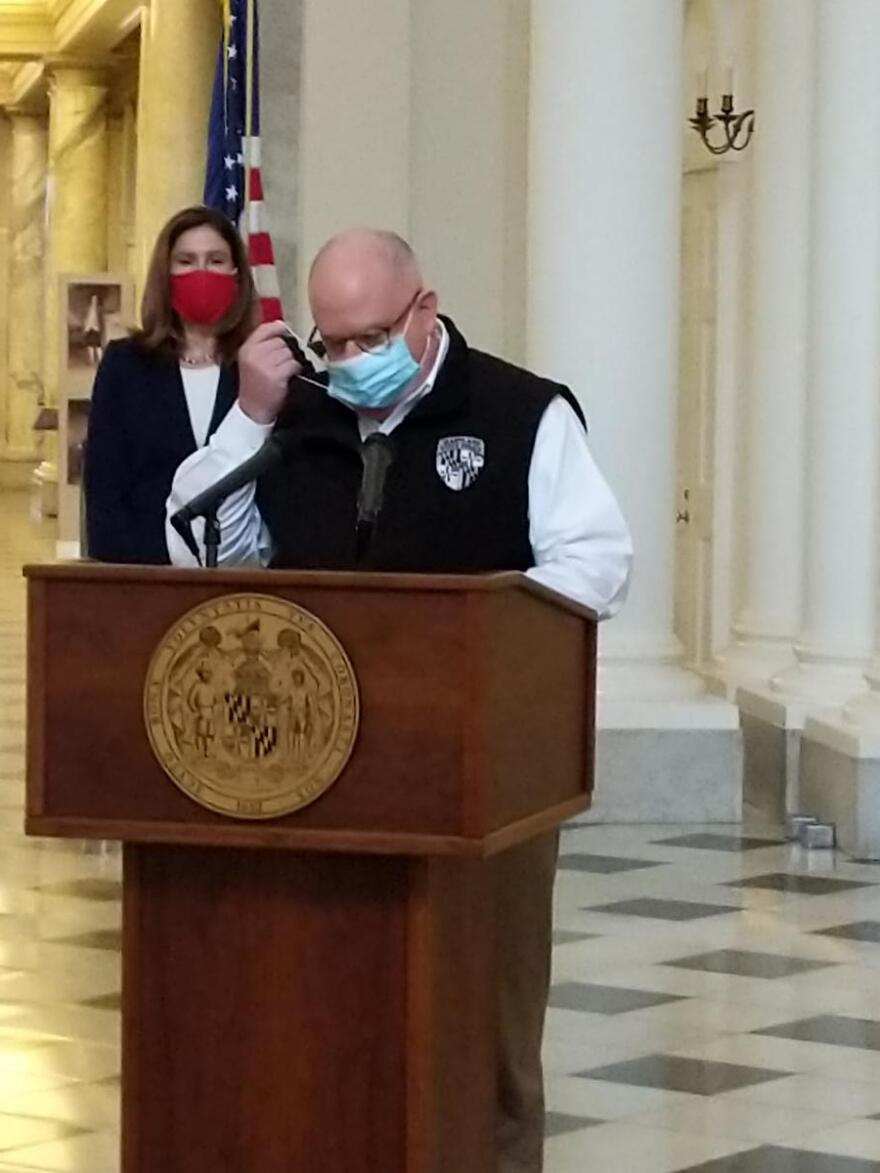Maryland’s coronavirus-induced state of emergency could be relaxed as soon as early May, Gov. Larry Hogan said Friday.
Hogan unveiled a three-step recovery plan that categorizes businesses and outside-the-home activities and events according to the amount of risk they pose to efforts to reduce the spread of COVID-19. The plan begins once hospitalizations and the number of patients admitted to intensive care units decline for two weeks.
The plan is also contingent on the state meeting four goals: at least 6,000 more hospital beds than hospitals had at the beginning of the public health crisis; the ability to test as many as 20,000 people a day for COVID-19; more personal protective equipment for healthcare and other essential workers; and an expansive “contact tracing” program to track down people who have come into contact with someone known to have the virus.
In the first phase, the stay at home order will be lifted. Low-risk businesses will be able to reopen, and outdoor activities and some non-urgent, outpatient medical and dental procedures will be permitted to resume.
In the second phase, the state will lift the cap on social gatherings. Religious services will be allowed to resume. Gyms, childcare centers, and some restaurants and bars will be allowed to reopen.
“This will likely be a longer stage of the initial recovery, but will also be the stage when a large number of businesses and activities come back online,” Hogan’s plan details. “Any businesses that reopen during this period will need to comply with strict physical distancing and appropriate masking requirements.”
In the last phase, large gatherings will be allowed. Bigger restaurants and bars and entertainment venues will be allowed to reopen. Visitor restrictions at hospitals and nursing homes will be loosened.
Hogan warned that recovery will be gradual.
“We won’t be able to just flip a switch, unfortunately,” Hogan said. “It is important to recognize that until a vaccine is developed, the way we go about our daily lives and the way we work is going to be significantly different for a while longer.”
Moving too quickly could cause the virus to rebound and prolong the economic crisis, he said.
He added that older residents and those considered medically vulnerable should continue to stay home even after the order keeping everyone home is lifted, and all residents should continue to avoid crowds.
Collective efforts to continue social distancing will be key, said Tom Inglesby, director of the Center for Health Security at the Johns Hopkins Bloomberg School of Public Health and a member of the team advising Hogan on the state’s coronavirus response.
“Taken together, all of our collective actions and decisions will either slow this virus down, or they will speed up the spread,” he said. “We're going to need to keep wearing cloth masks in public. We're going to need to keep our physical space of six feet or more. And we're going to need to telecommute when we can and it doesn't disrupt business operations."







